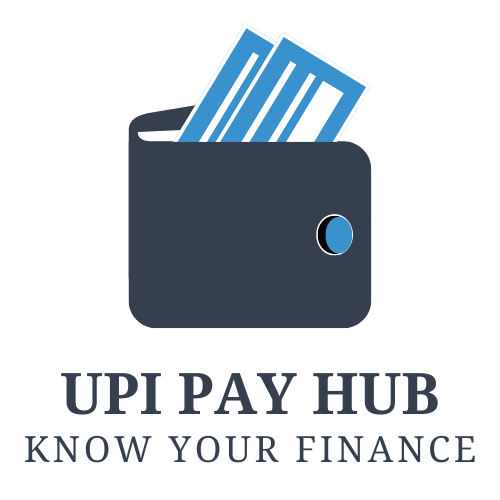OneMain Financial, one of the most powerful in the American lending establishment has struck a noteworthy negotiation with The Consumer Financial Protection Bureau (CFPB). The $20 million settlement comes amid allegations that OneMain engaged in “deceptive practices” with its optional add-on products. Both borrowers and observers of the industry may be left wondering what it means about lender practices —and whether consumers can protect themselves. In this lengthy post, we will explore the settlement itself, what caused it and its impact on existing or prospective customers of OneMain.
Understanding OneMain Financial: A Brief Overview
OneMain Financial was founded in 2010 and has become one of the largest personal loan companies across America. As the largest title loan company in the US, with 1,412 locations across 44 states and serving those consumers who might otherwise be unable to get financing from traditional banking services because of their low credit scores. Its services include personal loans, credit cards and a range of add-on products such as credit insurance and identity theft protection.
The CFPB Investigation and Findings
The CFPB Page settlement reached with OneMain involved how they handled optional add-on products, including credit life insurance, credit disability insurance and other financial protections. The CFPB said that OneMain deceived customers about the price and need for such add-ons.
A CFPB investigation had found that OneMain plied its employees, in the field and center alike, to push hard on selling those products even when a borrower initially rejected them. Employees were told that their job security would rely on them being successful in pushing these optional products a lot of the time. The CFPB determined that these practices ran afoul of the Consumer Financial Protection Act’s prohibitions against unfair, deceptive and abusive acts.
Key Issues Highlighted by the CFPB
Misleading Sales Practices: Kinney said OneMain was misleading consumers to believe that they had to purchase add-on products in order for their loans to be approved. That kind of practice, the CFPB charged, is an unfair and deceptive act under RESPA because it misrepresented to consumers loan terms.
Failure to Issue Full Refunds: The CFPB also found that OneMain failed to provide complete refunds in cases where consumers canceled these add-on products. Although people could cancel a sale during the “full refund period” declared by OneMain, in many instances they got back only premium or fees and did not receive refunded interest charges
Insufficient Consumer Disclosures: A related fundamental problem was OneMain’s failure to give clear and useful disclosures to borrowers. The optional nature of these products was not always explained to the customers, nor were they adequately informed about what it would cost them in their loan. This lack of clear communication made life less easy in the return process as consumers changed their minds about those add-ons later.
The $20 Million Settlement: Breaking Down the Details
As part of the settlement, OneMain financial has agreed to a number of material changes in its business practices:
Monetary Relief: OneMain will provide $10 million in consumer refunds, including interest charges on the add-on products that were not fully refunded at the time of cancellation. It also will pay $10 million to the CFPB’s victims relief fund.
Enhanced Refund Period: Starting now, OneMain is extending the cancellation period for its optional products to 60 days from month. This allows customers more time to consider their purchase decisions, and it gives them the opportunity—or makes buying outright briefly prohibitively expensive.
Policy Changes: OneMain has agreed to improve internal sales practices and compliance controls This ensures that customers are fully informed of the accessorial nature to any discretionary purchase with a loan requirement. OneMain will also use more transparent disclosures and increase the release loan agreements.
OneMain’s Response and Future Outlook
In response to the CFPB’s findings and final settlement, OneMain Financial issued a statement that it was pleased an agreement had been reached on this matter but not all of the conclusions made by the CFBP were agreed fully. The company said it had made many of the necessary changes before the settlement and underlined its commitment to conducting a safe, fair and transparent service.
OneMain’s management sounded a note of caution about the company in terms of keeping its focus on that, competing to improve the financial well-being for hardworking Americans. Changes arising from this consent order will reinforce that the company is able to guarantee customers receive financial products and services in a fair, ethical way.
What This Means for OneMain Borrowers
Consumers safety: The longer refund period and transparency in lending are good for borrowers that now have better rights when dealing with OneMain. These reforms make it less likely that you will be deceived about the terms of a loan or need products such as add-on without knowing full well what they are.
Might You Be Able to Win A Refund: If you were influenced by OneMain’s old enough practices, they might be qualified for compensation under the settlement. The CFPB has stated that consumers who were harmed have or will be compensated by OneMain.
More Lender Regulation: This case is another indication of the scrutiny placed on financial regulation. People should always read loan agreements with care, and in dealing with lenders people need to be aware of what they are really doing.
Also Read: Your Insurance Needs with a Hometown Insurance Request Form
Conclusion
The recent $20 million settlement between OneMain Financial and the CFPB underscores this point. OneMain has done a lot to make improvements in the areas noted by CFPB; however, this case serves as a reminder of importance behind transparency, fair practices and consumer protection.
This is good news for many of the borrowers, providing them with better protection and a way to recoup some financial losses. It is of utmost importance to be up-to-speed and alert in today’s changing lending environment.
Those lessons in mind will allow borrowers to make better decisions and steer clear of predatory practices prevalent among certain businesses. If you think a lender has lied to you, report them — the CFPB is there to help.

